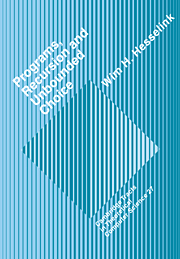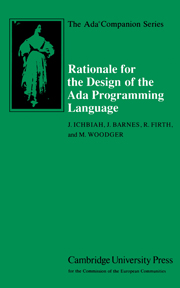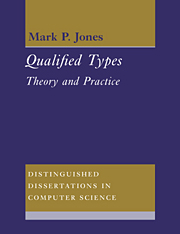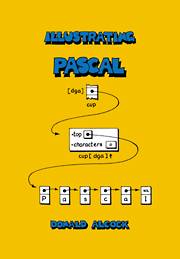Programs, Recursion and Unbounded Choice
This book is a complete account of the predicate transformation calculus semantics of sequential programs, including repetitions, recursive procedures, computational induction and unbounded nondeterminacy. Predicate transformation semantics are the best specification method for the development of correct and well-structured computer programs. The author develops this theory to a greater depth than has been achieved before, and describes it in a way that makes it readily compatible with programming rules for partial and total correctness of repetitions and recursive procedures, supplies new rules for proving incorrectness, and a stronger rule for proving that two programs satisfy the same specifications. Finally, the semantics are extended so that non-terminating programs can be specified as well. This will be essential reading for all computer scientists working in specification and verification of programs.
Product details
April 2011Adobe eBook Reader
9780511879210
0 pages
0kg
This ISBN is for an eBook version which is distributed on our behalf by a third party.
Table of Contents
- List of symbols
- Introduction
- 1. Weakest preconditions
- 2. Annotation, recursion and repetition
- 3. Healthiness laws
- 4. Semantics of recursion
- 5. Ramifications
- 6. Relational semantics
- 7. Determinacy and disjunctivity
- 8. Syntactic criteria
- 9. Operational semantics of recursion
- 10. Procedure substitutions
- 11. Induction and semantic equality
- 12. Induction and refinement
- 13. The strong preorder
- 14. Temporal operators
- 15. Predicative fairness
- 16. Solutions of exercises
- References
- Index of concepts and identifiers.






